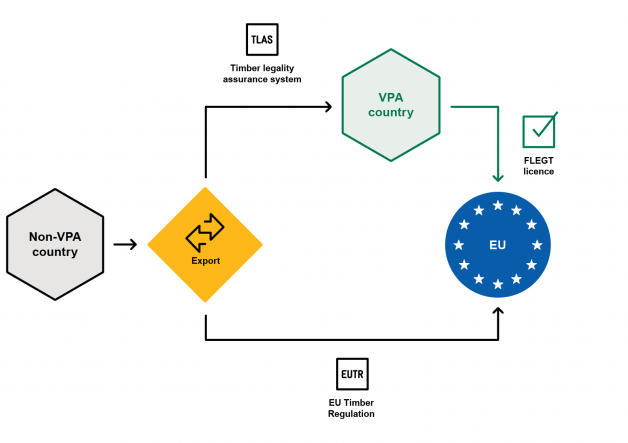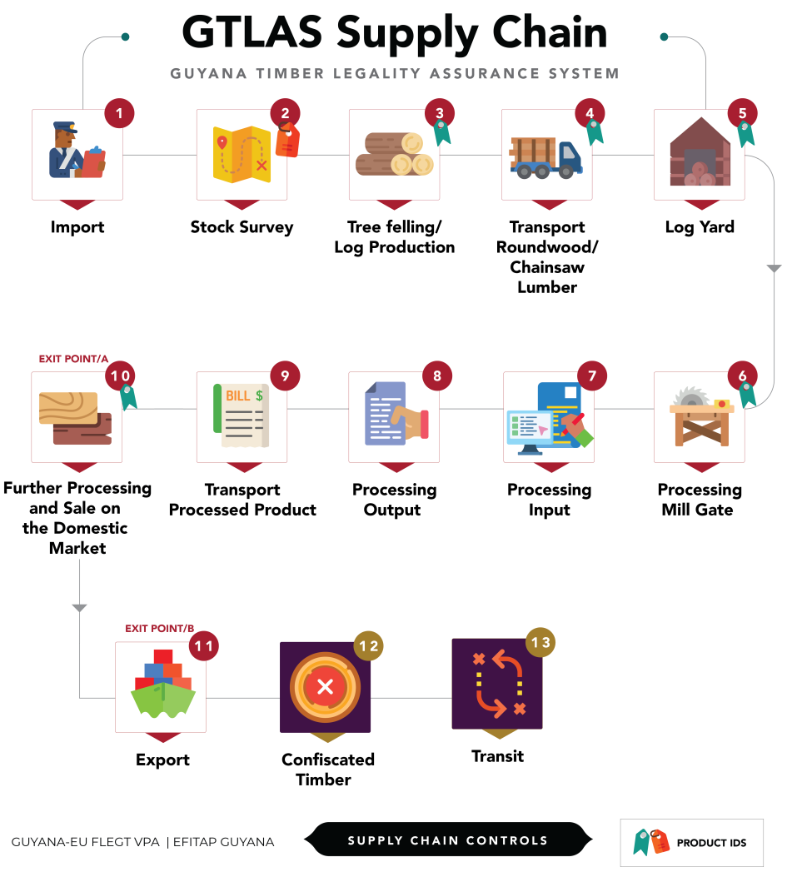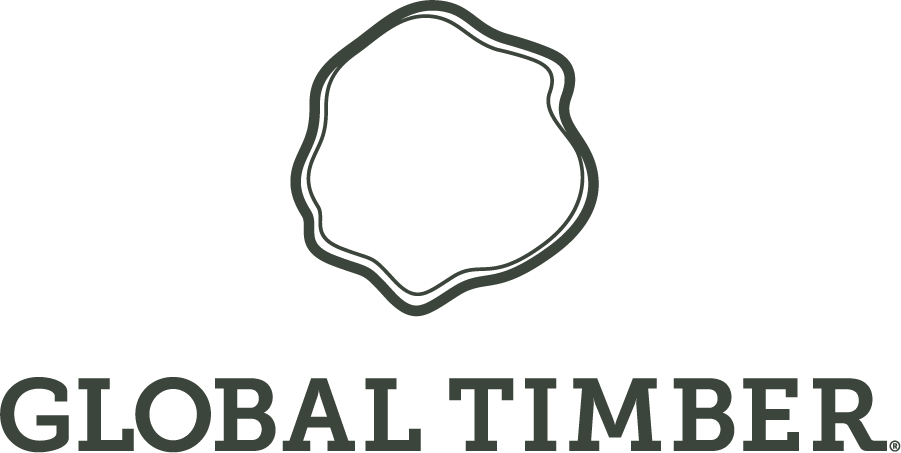By: Petra Postolache
The world needs more renewable materials and timber is one of the preferred renewables in the green economy of tomorrow. The global timber production is at an increasing pace, but there is no healthy economy on an unhealthy planet. Ensuring the legality of timber production and trade, and strengthening forest governance, are crucial for long term prosperity.
Illegal logging is especially a serious problem in tropical countries. It can have devastating impacts on the forests, its biodiversity, and the people’s livelihoods. More than the destruction of forests, illegal logging affects the economy badly as it strips billions of dollars from reaching the governments.
EU efforts to curb deforestation
The EU is one of the largest consumers of timber products, and therefore it had previously made a significant contribution to illegal logging in the tropics. Recognizing the seriousness of the issue, the EU adopted the Forest Law Enforcement, Governance and Trade (FLEGT) Action Plan in 2003 to combat illegal logging and trade of timber and of timber products globally to address forest deforestation and degradation.
Through FLEGT, the EU supports partner countries in improving forest law enforcement and governance by providing technical and financial help to develop timber legality assurance system (TLAS), promote legal timber, build the capacity of governments, civil societies, and businesses and reform policies.
Picture: Two ways in which the EU regulates the import of illegal timber into its market through the FLEGT Action Plan. © EU FLEGT
One of the key components of the FLEGT Action Plan is the Voluntary Partnership Agreement (VPA), a bilateral agreement between the tropical timber producing country and the EU. All signatories of VPA are expected to develop a TLAS protocol, define legal timber, and include a timber tracking system and licensing scheme to ensure the legality of their timber products that are exported to the EU.
FLEGT scenarios in Asia
In Asia, the EU FLEGT Facility works in seven countries: namely Indonesia, Vietnam, Laos, Malaysia, Thailand, China, and Myanmar. Out of the seven, only Indonesia is issuing a FLEGT license to verified timber products exported to the EU. Vietnam is in the implementing stage, whilst Laos, Malaysia, and Thailand are in the process of negotiation with the EU. China and Myanmar are in dialogue with the EU regarding FLEGT.
What is behind the license?
Under the VPA, countries have to set up a system capable of verifying the legality of their timber products. In Indonesia, for example their SVLK [1]system allows groups such as local and indigenous communities to monitor forests and identify illegal practices by operators. Their observations are reported and submitted to government authorities for further action[2].
FLEGT licences show that a country manages its forests in line with forest management and environment laws as well as labour and community welfare legislation. They show that logging rights have been granted according to the law, and that timber is legally harvested. The licences also confirm that products comply with legal requirements for trade and export, and that required taxes and fees are paid[3].
Below a picture of the verifying of timber legality for Guyana.
Source: https://euflegt.gov.gy/gtlas/guyana-timber-legality-assurance-system/supply-chain-controls/
Research[4] suggests VPAs countries decrease illegal logging rates, especially for timber destined to export. Since Indonesia signed the VPA, annual deforestation rates have fallen 56 %, from 1.1 million hectares to 480.000 hectares.
Critical voices are pointing towards the high costs of this system as this could harm small and medium enterprises (MSMEs) and in the long run, worsen rural poverty. The technical and administrative requirements for getting a legality certificate in Indonesia has become more complex following FLEGT. This means timber producers and companies must spend more money on timber legality verification.
Conclusion
Despite its limitations, FLEGT and VPA prove that trade is an effective tool for motivating countries to reform and strengthen legal and sustainable forest management and economic development. Moreover, after the FLEGT system was proven successful, an increasing number of other countries started to introduce similar legislation in order to create a global trade environment, where the legality of timber imports must be demonstrated.
Sources:
- How can illegal timber trade in the Greater Mekong be stopped?
- https://asianews.network/domestic-timber-key-to-a-sustainable-industry-in-vietnam/
- https://www.fao.org/in-action/eu-fao-flegt-programme/news-events/news-details/en/c/1455750/
Footnotes
- [1] Sistem Verificasi Legalitas Kayu (the acronym of Indonesia’s national timber legality assurance system)
- [2] https://www.fao.org/in-action/eu-fao-flegt-programme/news-events/news-details/en/c/1455750/
- [3] https://www.flegtlicence.org/about-the-flegt-licence
- [4] Collecting Evidence of FLEGT-VPA Impacts for Improved FLEGT Communication – CIFOR Knowledge


